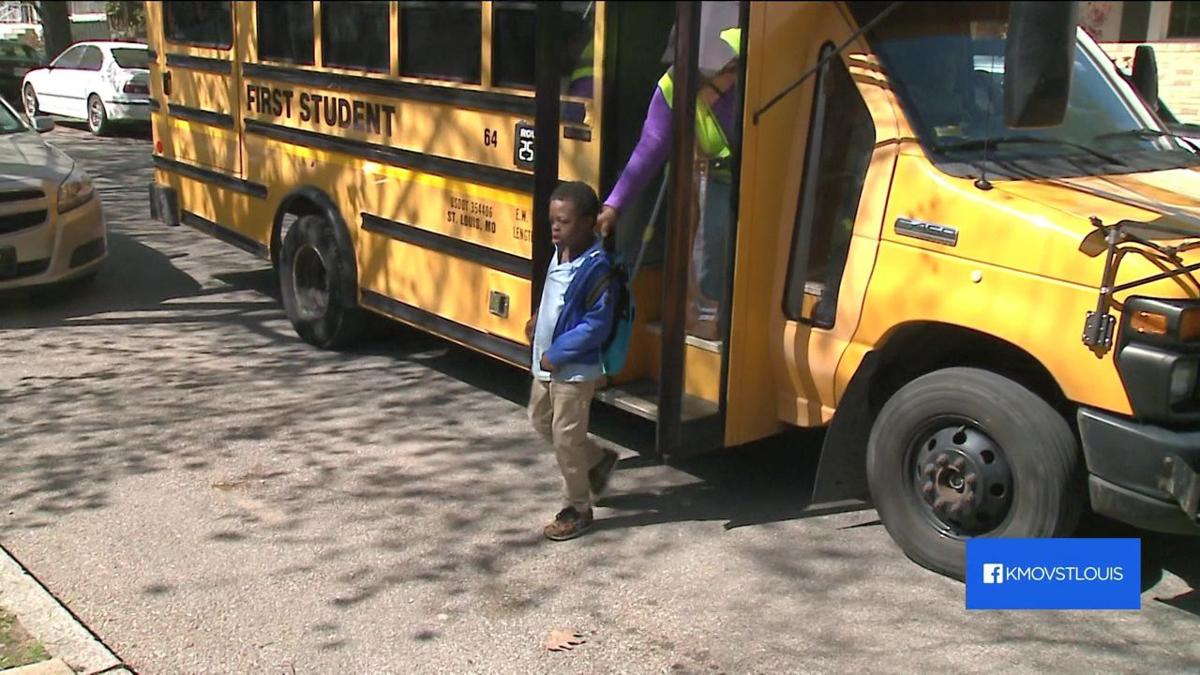Mom claims ‘mean girls’ bullied son into suicide challenge
An Ohio boy was bullied into participating in a suicide challenge, and his mom is demanding that his school punish the “mean girls” who she says goaded him into doing it, according to a report.
The Madisonville Smart Elementary School student was admitted to the hospital Monday after he was discovered with a belt wrapped around his neck, news station WXIX reported.
“A girl saw his friend in the hallway and said you better check on your friend, because he’s trying to kill himself,” his mom told the news station.
The mom — who requested anonymity to protect her son’s privacy — said he was confronted Monday by several “mean girls” in the boy’s bathroom.
The group reportedly bullied her son into a deadly challenge known as “Will you die for your mother?”
It’s unclear what the conditions are in the dangerous challenge — but the boy feared his mother would be harmed if he didn’t follow through, the news station reported.
“Of course, he didn’t really want to end his life,” his mom told WXIX. “He said, ‘Mom, all I thought was being without you, and I don’t want to be without you.’”
He was found coughing and crying with the belt around his neck after attempting the challenge in the bathroom, his mom said.
The child was taken to the school nurse then brought to the Children’s Hospital, where he is recovering from the incident, the news station reported.
“I get a call stating from the receptionist that my son tried to commit suicide in the bathroom,” the mom said, adding that he’s “never tried to do anything like that.”
The school reportedly notified the girls’ parents, but the victim’s mom is calling for administrators to discipline those involved. In the meantime, she said she will not permit her son to return to class.
“The girls are still there and they’re laughing about it,” the mom said.
David Cash, who heads Charter School Specialists, which sponsors Madisonville Smart, said the bullying allegations “certainly are being addressed.”
“The board reviewed the situation with school administration, reviewed all of the actions that had been taken,” Cash said. “All the appropriate actions have been taken by the board at this point.”
via: https://nypost.com/2019/04/18/mom-claims-mean-girls-bullied-son-into-suicide-challenge/
National Poetry Month: Richard Wright
Haiku (67, 75, 78, 93 & 95) – Poem by Richard Wright
Richard Nathaniel Wright was an African-American author of novels, short stories, poems, and non-fiction. His literature concerns racial themes, especially those involving the plight of African Americans during the late 19th to mid-20th centuries.
67
The day is so long
That even noisy sparrows
Fall strangely silent.
75
Spring begins shyly
With one hairpin of green grass
In a flower pot.
78
An apple blossom
Trembling on a sunlit branch
From the weight of bees.
93
Leaving its nest,
The sparrow sinks a second,
Then opens its wings.
95
Like a fishhook,
The sunflower’s long shadow
Hovers in the lake.
National Poetry Month: Sandra Cisneros
Black Lace Bra Kind of Woman – Sandra Cisneros
Sandra Cisneros (born December 20, 1954) is an American writer best known for her acclaimed first novel The House on Mango Street and her short story collection Woman Hollering Creek and Other Stories.
Wachale! She’s a black lace bra
kind of woman, the kind who serves
up suicide with every kamikaze
poured in the neon blue of evening.
A tease and a twirl. I’ve seen that
two-step girl in action. I’ve gambled bad
odds and sat shotgun when she rambled
her ’59 Pontiac between blurred
lines dividing sense from senselessness.
Ruin your clothes, she will.
Get you home way after hours.
Drive her ’59 seventy-five on 35
like there is no tomorrow.
Woman zydeco-ing into her own decade.
Thirty years pleated behind her like
the wail of a San Antonio accordion.
And now the good times are coming. Girl,
I tell you, the good times are here.
2 First Student employees pulled from Saint Louis Public School routes after leaving 10-year-old with Down syndrome unsupervised at home
ST. LOUIS (KMOV.com) — A local mother said her 10-year-old boy, who depends on assistance to do basic things every day was left helpless after a bus driver dropped him off with no parent to supervise him.
Luckily, Kristian Stokes’ son was ok, but for 30 minutes, she was terrified.
“I didn’t know where my child was,” she said.
Stoke’s son is a fourth grader at Gateway Michael Elementary and lives with Down syndrome.
“My child is not able to verbalize his words, can’t speak for himself and really needs to be supervised at all times,” she said.
On Tuesday, the bus he rides from school did not show-up between 3 p.m. and 3:15 p.m. as usual.
Stoke’s other child needed to be picked up from school, and she wasn’t aware of where her son’s bus was.
“I had to pick my daughter up from her school, which she has to be picked up at 4 o’clock, which is around the corner,” Stokes said.
She learned, after making several calls, the bus did arrive late- while she was picking up her daughter.
The bus driver and monitor who was on the bus found that no one was there, put the boy inside his home with no one inside.
He went downstairs to the laundry room, and when Stokes returned she didn’t know he’d come home.
She called the bus company and her son’s principal.
The principal, Stokes says, told her the fourth-grader was walked inside the home because the door was open.
“She let me know that was unnacceptable and that should not have happened,” Stokes said.
But she couldn’t find her son, even after checking upstairs and calling her family. Because the boy is non-verbal, she didn’t know he was just feet away in the basement.
“I texted my niece and brother who live with me. I asked them if they picked him up, took him with them and did not let me know,” she said. “I got responses from them, that ‘s a no, they were at work.”
Then mom walked downstairs to the laundry room where she found her son.
“I was relieved but upset at the same time, panicked still because of the bleach, detergent and all kinds of stuff down here. I do not know what he’s gotten into.”
He appears to be ok, but Stokes believes what happened to her son underscores a consistent problem with bus company First Student.
“A lack of training, not paying attention to what they were supposed to be doing, it was negligence,” she said.
Stokes wants the bus driver and monitor fired.
News 4 reached out to St. Louis Public Schools and First Student. Both confirm her story of events and agree procedure was not followed.
In separate statements, both tell News 4 the driver and monitor are no longer driving routes for St. Louis Public Schools.
“The driver and monitor did not follow our protocol of hand-to-hand drop-off. Both have been removed from district routes. We have been in touch with the student’s family and thankful [the child] is fine.”
-Jay Brock
First Student spokesperson
60-year-old Florida man paid for sex with girls as young as 14, faces more than 70 charges
(Meredith/CNN) — A 60-year-old Florida man is facing more than 70 counts of child pornography after being accused of exchanging money for sex acts with teenagers.
Neil Steven Greenberg has been charged with unlawful sexual activity, along with possessing and promoting child pornography.
Authorities say the 60-year-old from Sunrise paid girls as young as 14 years old to engage in sexual acts with him.
According to the arrest affidavit, investigators searched Greenberg’s home and discovered 36 videos showing him with girls as young as 14 years old.
They were on an SD memory card hidden on under a false bottom in a locked safe located in a bedroom closet.
Greenberg is currently being held in the Broward main jail on more than $1 million bond.
Photo Credit: Broward County Sheriff’s Office
Woman ‘infatuated’ with Columbine massacre has been found dead
An armed teenager whose threats forced the closure of almost 20 school districts in Colorado has been found dead, a law enforcement official told CNN.
Sol Pais, an 18-year-old high school senior from Florida, was found dead Wednesday morning, the law enforcement official said.
Authorities said Pais was “infatuated” with Columbine and made threats as she traveled to Colorado this week — the same week as the 20th anniversary of the Columbine High School massacre, which left 13 people dead.
“There is no longer a threat to the community,” the FBI’s Denver office tweeted Wednesday, using the hashtag “#FindSol.”
“Additional details are not immediately available,” the FBI office said.
Pais made “credible” — but not specific — threats after traveling from Miami to Denver on Monday night, said Dean Phillips, the special agent in charge of the Denver FBI office.
After Pais arrived in Colorado, she immediately went to a store and bought a pump-action shotgun and ammunition, the FBI said.
Pais was considered a threat to the community and schools, but there was no information on any specific threat to a particular place, Phillips said.
At least 19 school districts closed
Jefferson County Public Schools, which includes Columbine High School in Littleton, were among almost 20 school districts closed Wednesday as authorities searched for Pais.
Other school districts that shut down for the day include the Douglas County School District, Aurora Public Schools and Cherry Creek Schools.
In a letter to parents, Boulder Valley School District Superintendent Rob Anderson said the decision to cancel classes was unanimous among area school leaders.
“We couldn’t take the risk of having one student or staff member injured — so superintendents unanimously decided late last night to close school,” Anderson wrote to parents Wednesday morning.
The wanted teen was last seen wearing camo
Pais was a student at Miami Beach Senior High School, said Daisy Gonzalez-Diego, spokeswoman for Miami-Dade County Public Schools.
Gonzalez-Diego declined to give more details about Pais.
After the 18-year-old arrived in Colorado on Monday, she purchased a pump-action shotgun and ammunition and went to the foothills, Phillips said.
“Her comments, her actions that we have heard about from others tend to cause us great concern that she may pose a threat to a school,” he added.
Prior to news of Pais’ death, a man who said he was Pais’ father told the Miami Herald he lost contact with his daughter Sunday.
“I think maybe she’s got a mental problem,” he told the Herald.
‘This opens a wound’
On April 20, 1999, two students killed 12 of their schoolmates and a teacher in a mass shooting at the high school in the town of Littleton — about 10 miles from Denver.
Jefferson County Sheriff Jeff Shrader said this week’s potential threat of violence adds more pain to a community still grieving.
“I know that this opens a wound, especially on an anniversary week, for those families who were most deeply impacted by this,” he said.
via: https://pix11.com/2019/04/17/woman-infatuated-with-columbine-massacre-has-been-found-dead/
It’s now legal for your meat to have trace amounts of fecal matter.
This product “may contain feces.”
That’s the label that one consumer rights advocacy group wants for the government to require meat distributors put on the food they send out to grocery stores.
The recommendation is tongue-in-cheek, Deborah Press, an attorney for the Physicians Committee for Responsible Medicine, tells CNN. The group represents 12,000 physicians whose mission includes promoting plant-based diets and ethical scientific research.
But it gets at real concerns the PCRM has about the US Department of Agriculture’s food safety inspection system.
The US Department of Agriculture has a “zero tolerance policy for fecal material on meat and poultry,” a spokeswoman told CNN.
USDA said it sends inspectors out to facilities who look at a “statistically valid sample of carcasses randomly selected throughout the production shift.”
If inspectors find fecal material on an animal carcass, they ensure that contaminated meat can’t enter the food supply, USDA said. And if inspectors observe repeat infractions, the FSIS uses “progressive enforcement actions” against the meat company.
But Press says USDA’s current inspection policy isn’t good enough because it only applies to fecal matter that’s “visible” on the production line.
And the USDA has relaxed its rules on the speed at which poultry companies can process birds. The requirement used to be 140 birds per minute, but has since been raised to 175 birds per minute.
That would mean those working on the line are scanning about three birds per second. They’re whizzing by at a rate that’s hard for the naked eye to comprehend.
Doctors are looking for answers
For at least six years, the PCRM has been asking questions about fecal matter contained in the birds we eat on a daily basis.
Yesterday, the group filed a lawsuit in a federal district court based in Washington, DC.
The question matters, first of all, for the obvious gross factor. “Nobody wants to eat feces,” Press says. But it gets more dire quickly: harmful microbes like E. coli are found in fecal matter.
Despite their questions and follow-ups, they say they’re not getting straight answers from the government about its food inspection procedures.
In 2013, PCRM sent a petition to USDA asking for it to change its rules regarding fecal contamination, and to remove the word “wholesome” from the way it labels and categorizes food that’s past inspection.
Press said the term misleads the public.
The PCRM tested chicken products, and found 48% tested positive fecal contamination. And the petition cited a Consumer Reports study that corroborated their evidence, finding “more than half of the packages of raw ground meat and patties tested positive for fecal bacteria.”
The USDA didn’t respond to the petition.
In 2017, the PCRM filed a Freedom of Information Act request asking for “records regarding the number of USDA poultry inspectors, detection rates for visible fecal contamination in poultry, average poultry line speed, USDA poultry inspection rates, and inspection training.”
Their lawsuit this week says the USDA violated the Freedom of Information Act by failing to respond to that FOIA request about fecal contamination rates. Federal law requires that agencies respond to FOIA requests within 20 days of the agency receiving them, according to the Digital Media Law Project.
In a statement, a spokeswoman for the Department of Agriculture told CNN that USDA can’t comment on pending litigation.
The requirement around “visible” fecal contamination belies what’s going on in the bowels of those chickens, the PCRM says.
In its legal complaint, the group cites an unnamed federal inspector who spoke to them:
“We often see birds going down the line with intestines still attached, which are full of fecal contamination,” that inspector told them. “If there is no fecal contamination on the bird’s skin, however, we can do nothing to stop that bird from going down that line.”
From there, the bird would get into a large vat of water called the chill tank, where fecal matter in the bowels can easily wash out and settle on other bird carcasses in the tank. The inspector cited in PCRM’s legal complaint said this is sometimes called “fecal soup.”
Hope for reform
Press said the complaint faces an uphill battle in court. But she was optimistic that reform is possible.
“‘The Jungle’ came out in 1904,” she said. “At that time, there was no federal oversight” of food manufacturing. But Theodore Roosevelt, the President at the time, read the muckracking novel that detailed the horrors of the meatpacking indstury. He demanded action.
In 1906, Congress put the Meat Inspection Act and Pure Food and Drug Act on Roosevelt’s desk for his signature.
Press is hoping that, by detailing the industry’s flaws today, PCRM can push for improvements in food safety.
Man arrested entering St. Patrick’s Cathedral with cans of gas, lighters
MANHATTAN — A man was taken into custody after he tried to enter St. Patrick’s Cathedral with several gallons of gasoline on Wednesday night, police said.
Authorities said the man could be seen on area security cameras parking a minivan on 5th Avenue and walking around the area.
The man returned to his vehicle around 8 p.m. and then tried to bring two 2-gallon cans of gasoline, two bottles of lighter fluid and two extended, butane lighters controlled by a trigger, into St. Patrick’s Cathedral, police said.
A security officer confronted the man after he entered and told him he could not bring the items inside. Some gasoline spilled on the floor as the security officer turned the man around, police said.
The man later told police he was just cutting through the cathedral to get to Madison Avenue and that his car had run out of gas, officials said. Police checked his vehicle; it was not out of gas.
Five police vehicles were seen out front of St. Patrick’s Cathedral. Counterterrorism NYPD officers were at the scene.
People were told to expect a heavy police presence in the area.
Aa spokesperson for the Archdiocese of New York said an “individual was stopped as he tried to come into the cathedral.” The man was turned over to the police and nothing happened inside the cathedral, according to the spokesperson.
This comes just days after a devastating fire at Notre Dame in Paris. The spire at the cathedral collapsed as Parisian firefighters battled that massive blaze.
via: https://pix11.com/2019/04/17/nypd-investigating-incident-at-st-patricks-cathedral/
Kansas teen with Down syndrome says Sheels wouldn’t let her ride Ferris wheel with friends because of disability
OVERLAND PARK, Kan. – A Johnson County teen says she was discriminated against, labeled as disabled and denied an opportunity at the Scheels in Overland Park.
Her mother said the popular sporting good store has no written policy to prevent it from happening again.
Eighteen-year-old Kathryn Embry has Down syndrome, but she has no problem keeping up with the girls on the Blue Valley North soccer team.
“I really like them being on my team because they’re amazing,” she said.
“She’s our manager, and she keeps the team in line,” her longtime friend Emily Kramer said.
Kramer and another friend, Morgan McGruder, were the first to go to bat for Kathryn after a class field trip to Scheels last week.
“It made me really upset because I know that Kathryn is an amazing girl,” McGruder said.
The girls teamed up with Kathryn to record a video of what she said happened on the class trip.
“Kathryn’s mom said the school could not do anything, so that just made me really angry,” Kramer said.
“I tried to go on the Ferris wheel with my buddy, but they said I can’t because I have disabilities,” Kathryn said.
Students said the class is half made up of kids with special learning needs and half peer students who work with them. They said they usually ride the Ferris wheel in pairs.
That night, Kathryn’s parents got Scheels on the phone.
“The store manager at the time said he hadn’t heard about the incident, but he could confirm they had a policy that everybody needs to be able to understand and follow the rules,” her mother Karen Embry said.
Karen’s issue is that no one ever asked Kathryn if she understood, and the staff that day didn’t cite that rule. Karen said they told the group something different.
“They said everybody with disabilities in the group, you need to have a person who’s an adult chaperone,” she said.
Karen never got a copy of any written policy from the company, and WDAF couldn’t find one when researching Scheels online.
“The thing is, Kathryn has Down Syndrome, so you can look at her and see that she has a disability,” Karen said. “But it says nothing about what her capabilities are. She can read the rules. She can follow the rules.”
“Just because someone might look different than someone else you shouldn’t assume their capabilities. Kathryn can do anything we can do,” McGruder said.
The group understands Scheels may have safety concerns, but her friends take issue with the inconsistency.
“I’ve been on the Scheels trip before. They’ve let other students with disabilities ride with peer tutors,” Kramer said. “They told her she couldn’t even ride with a peer, with another student, which is just outrageous.”
Kathryn did get to ride that day. But they only let her on with an adult chaperone even though she’s 18.
Ultimately, her supporters said it’s not about the ride.
“It’s more than just the Ferris wheel,” Kramer said. “It’s the fact that they looked at her and discriminated against her because of how she looked. She is our good luck charm, so we had to help fight back for her.”
“We’re not here about a boycott and [to] shut down a business that’s been very generous in our community,” Kathryn’s family said. “We’re about educating — not just the community at large, but business — about how even if it’s unintentional, it’s still illegal and it’s still wrong because it perpetuates stereotypes and it hurts a population, especially who are hitting this young adult stage.”
Karen said they’d appreciate an apology and a change of policy.
As of Tuesday evening, Scheels had not responded to WDAF’s phone calls and messages.
The Blue Valley School District said in a written statement:
“We are proud that Blue Valley employees have the best interests of our students at heart. The physical and emotional well-being of our students is always a top priority. We appreciate the efforts of our community partners to keep our kids safe through equitable practices.”
‘Shell on’ challenge is the latest dangerous Snapchat trend among teens
Teens are daring each other to eat plastic packaging, cardboard boxes and fruit peels — and posting videos of themselves doing it to Snapchat — in a bizarre new social media trend called “shell on.”
While not as dangerous as the potentially fatal “Tide Pod challenge” which involved eating laundry detergent pods, doctors still advise against eating anything that isn’t food.
“Organic material like fruit peels are typically not dangerous. Zest is often used in recipes (lemon zest) which is the shavings of the rind,” Chicago-area physician Max Plitt told The Post. “Eating plastic, on the other hand, can be dangerous. BPA has been suggested to influence hormones. Chemicals in PVC like vinyl chloride have been linked to cancers.”
A recent video posted to Snapchat shows Liam Hamm, a sophomore at McClintock High School in Tempe, Arizona, biting through a plastic bag filled with carrots.
“Ya’ll eat your lunch with or without the shell,” reads a caption along with the video of Hamm tearing through plastic packaging with his teeth.
Hamm told the Arizona Republic he’s seen scores of other teens posting “shell on” videos on Snapchat, including one in which a teen bites into a lemon and accidentally shoots lemon juice into their eye.
“It just looks funny because it’s not really a shell, but people are calling things shells. I guess that is what’s funny about it,” Hamm said.
Hamm said he didn’t know where the trend originated, but that he’s happy it’s not Tide Pods.
“It’s the Tide Pod challenge minus the fact that it’s not dangerous,” he said.
While the trend appears mostly on Snapchat, several people blasted the teens in the videos on Twitter.
“I wondered why Boomers judged GenZ until I saw a thread about the ‘shell on challenge.’ After 12 videos of high schoolers eating bananas with the peel on… I can finally say I relate to the Boomers,” tweeted Devin Spinks.
“Idk about this ‘shell on challenge’ but I’ve been eating the entire apple, core and all, for years,” wrote KG.
via: https://nypost.com/2019/04/17/shell-on-challenge-is-the-latest-dangerous-snapchat-trend-among-teens/











